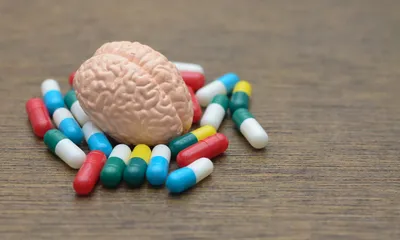Irregular Heartbeat
-
Description
-
Signs & Symptoms
-
Anatomy
-
Cause
-
Diagnosis
What is an Irregular Heartbeat?
An irregular heartbeat is when the heart is not beating as it would normally, but it is important to know that an irregular heartbeat is not always a cause for major health concern. Bradycardia is a slowed heartbeat, and a mild bradycardia is not going to be abnormal for a lot of people. The same can apply for slight tachycardia, although a rapidly accelerated heart rate may be dangerous for people who are in poor cardiac health.
Arrhythmia is the other term used for an irregular heartbeat. With ventricular arrhythmia the ventricles in the heart’s lower chambers do not open and close in a rhythm that is consistent in the way it would if the electrical signals from the nervous system arriving in the heart are disrupted. An atrial fibrillation is a common example of a ventricular arrhythmia that may be seen as an irregular heartbeat. The other type is a supraventricular arrhythmia with examples being atrial flutter and Wolf-Parkinson-White syndrome.
What Causes Irregular Heartbeat
An arrhythmia can be caused by any number of reasons, but the most common ones are autonomic imbalance in the body, heart disease, overstimulation of the vagus nerve, electrolyte, metabolic, or genetic disorders, and drugs or Rx medication that trigger an irregular heartbeat. A temporary irregular heartbeat may be caused by anxiety, strong emotions, stress, or surprise.
Thyroid gland dysfunction can be behind what causes an irregular heartbeat too, and people with high blood pressure are more likely to have arrhythmias as well. A COVID-19 infection may cause you to have heartbeat irregularities while the infection is active. In rare instances impact trauma to the exterior of the thoracic cavity that impacts the heart may also cause an irregular heartbeat and may be very serious.
Irregular Heartbeat Symptoms
It is possible to have an irregular heartbeat and not be aware of it, and this is especially common with bradycardia. For a tachycardia or other type of supraventricular arrhythmia there are usually very noticeable irregular heartbeat symptoms, including:
- Heart palpitations
- Chest tightness, pounding, or pain
- Dizziness or feeling lightheaded
- Fainting
- Shortness of breath
- Fatigue
- Anxiety
- Blurred vision
- Sweating
Irregular Heartbeat Treatment
The most conventional approach to irregular heartbeat treatment is to have the person start on anti-arrhythmic medications like Tambocor or Mexitil that block the faulty electrical signals that are causing the heart to beat irregularly. If electrolyte imbalances in the body are a contributor to a person having an arrhythmia, then taking supplementation to balance levels may also be a part of irregular heartbeat treatment.
With cases of an irregular heartbeat posing a risk of heart failure and medication not being effective for addressing it there may be a need for surgical procedures like an electrical cardioversion or ablation therapy for irregular heartbeat. To treat one occurring because of infection it will be necessary to use antibiotics or antiviral medications to address the source of the infection, and then seeing the heartbeat corrected when the infection has been cleared.
Signs & Symptoms
- Palpitations (a feeling of skipped heartbeats, fluttering or "flip-flops")
- Chest pain or discomfort
- Shortness of breath
- Dizziness or lightheadedness
- Fainting (syncope) or near fainting
- Fatigue
- Sweating
- Anxiety
- Weakness
Anatomy
- Heart
- Atria
- Ventricles
- Sinoatrial (SA) node
- Atrioventricular (AV) node
- His-Purkinje system
- Blood vessels
Cause
- Coronary artery disease
- High blood pressure
- Heart attack
- Heart failure
- Cardiomyopathy
- Electrolyte imbalances
- Thyroid problems
- Medications
- Alcohol or drug use
- Stress
- Sleep apnea
Diagnosis
- Electrocardiogram (ECG)
- Holter monitor
- Event monitor
- Echocardiogram
- Stress test
- Electrophysiological testing and mapping
- Blood tests
- Chest X-ray
- Tilt table test



